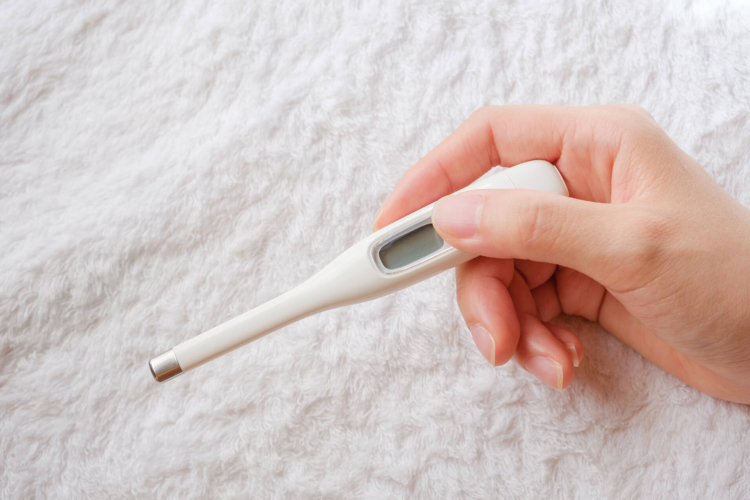Soreness while breastfeeding
Many mothers complain of sore nipples, especially at the beginning of feedings during the first week of nursing. Don’t worry, this is normal. Nipple soreness is usually due to poor positioning of baby on the breast.
To relieve the pain:
Leave a few drops of milk on your nipples between feedings.
- Apply a bit of a lanolin-based cream (Purelan, Lansinoh) to help heal minor irritations and cracks.
- Take acetaminophen (Tylenol, Atasol) if needed, which is safe for nursing mothers.
Talk to a doctor if the pain persists or increases.
Swollen breasts and mastitis
In most cases, swelling starts between the third and fifth day after birth and gradually decreases thereafter. The best way to reduce swelling is to increase the frequency of feedings and let the baby nurse when and as long as they want to.
Say goodbye to the idea of three to four hours between feedings; breastfed babies usually nurse more frequently.
Mastitis symptoms
If you have one of these symptoms, you could have mastitis:
- Sensitivity in a specific place on the breast
- Red, inflamed area on the breast
- Flu-like symptoms
- Fever
If symptoms last more than 48 hours, see a health care professional.
Mastitis treatment
- Breastfeed the baby frequently to sooth swelling and stimulate milk flow.
- Rest.
- Massage the breast, especially around the painful area.
- Apply hot compresses before breastfeeding.
- Apply ice for 10 minutes every hour to help reduce swelling.
- Talk to your pharmacist about medication that can help.
Not enough milk
A decrease in milk production may be caused by many things. It is usually due to insufficient stimulation of the breasts due to the baby not latching on properly, a limited number of daily feedings (less than eight), or regular bottle feeding with formula.
Many mothers suspect they don’t have enough milk because the baby cries and wants to nurse frequently, but this is rarely the case if the baby latches on properly and is breastfed on demand. It is normal that the baby wants to suckle; it isn’t because there isn’t enough milk or it isn’t rich enough. After a few weeks of nursing, it is normal to feel that your breasts aren’t as hard, or feeling full.
Increasing milk production with a breast pump
Stimulate the breasts as often as possible, either by breastfeeding the baby or using a breast pump to empty them as much as possible.
Other things that can cause a lack of milk
- Breast reduction surgery
- Hormonal imbalance in the mother
- A new pregnancy
- Certain medications.
In such cases, talk to a health care professional in order to evaluate the problem.
Breast pump
If you would like to use a breast pump, buy a new one. Even if you boil a used one to sterilise it, it is impossible to guarantee that all of the bacteria and viruses that could affect your baby’s health have been eliminated.
Diet and breastfeeding
Natural products
Natural products contain active substances that can be toxic. Since very few studies have been done on these products, there is very little scientific information about their use and safety when nursing. As some of the substances can be passed through breast milk, it is best to avoid anything that could be harmful to your newborn.
Alcohol
If mothers take certain precautions, like waiting until after the baby has been fed, they can have an occasional drink (a maximum of two per week) even when nursing. Since the body processes alcohol in two to three hours, it should be eliminated by the time the next feeding is due. However, since alcohol is passed through breast milk easily, baby could get drowsy if trace amounts remain. As well, regular drinking can compromise baby’s development.
Caffeine
Caffeine is passed through breast milk and can make the baby agitated and irritable. Caffeine can be found in coffee, chocolate, team cola-type soft drinks and energy drinks. Ideally nursing mothers should limit themselves to two caffeine-containing drinks or snacks a day.
Nicotine
The best thing for both you and your baby is to stop smoking, since nicotine in tobacco is passed though breast milk. However, breast milk remains the best source of nutrition for the baby, even if you smoke. Just be careful not to expose your baby to second-hand smoke, since it greatly increases the chance of sudden infant death syndrome.
Breastfeeding when sick
Mothers very rarely have to stop nursing their babies due to illness. If mothers catch an infectious disease (usually caused by a virus), they are often contagious before they show symptoms. By the time symptoms appear, babies have already been exposed. However, since breast milk protects babies against illness, there is a good chance that they won’t even get sick, or if they do, they will be less sick than if they weren’t breastfeeding
In cases of mastitis or blocked milk ducts, mothers should continue to breastfeed, since in most cases it will help the infection clear up more rapidly.
This information is not a substitute for professional medical advice and Accès pharma affiliated pharmacist-owners cannot be held responsible for this information. The information was true and accurate at the time of publication, but it is subject to change.





